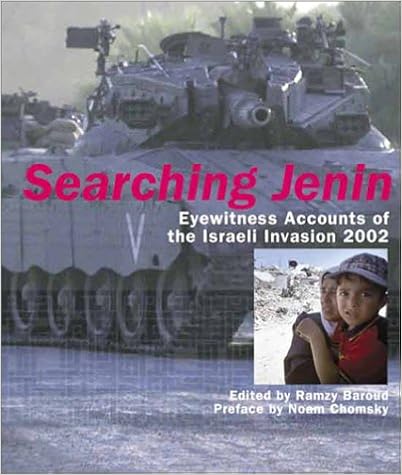by RAMZY BAROUD and ROMANA RUBEO
 IMAGE/Amazon
IMAGE/Amazon
Palestinian-American historian, journalist and author, Dr. Ramzy Baroud, speaks on his upcoming book, just-released digital media project – Palestine in Motion – and why Palestinian history has to be urgently retold. Baroud has been writing about the Middle East for over 20 years. He has a Doctorate of Philosophy in Palestine Studies from the European Centre for Palestinian Studies at the University of Exeter and his approach – at times, is that of a historian.
There has always been a clear distinction between historians and journalists; the former tend to consider the big picture, while journalists tend to report from what we could call an “annalistic approach”. How do you combine these two perspectives?
In the case of Palestine, as in other national struggles that are rooted in the past, history is at the heart of the story.
Many people tend to have short-term memory when the rights of the Palestinians are in question. This feeds quite well into the Zionist narrative, which has aimed to displace Palestinian history altogether, and replace it with something entirely different, albeit a construct; a falsified history.
The latter is not my own conclusion, but a fact, reported, although timidly, in Israeli media (almost never in US mainstream media). Although files relating to the 1948 ethnic cleansing of Palestinians in 1948 are still hidden in Israeli archives (they should have been de-classified a long time ago), one document, according to Israeli newspaper Haaretz, has escaped the keen eye of the Israeli censor: file number GL-18/17028.
This file shows the process of how Israel’s first Prime Minister, David Ben Gurion, resorted to Zionist historians in the early 1950s to forge an alternative story as to how Palestinian refugees were expelled. He chose the most convincing one, and that became ‘history’. In other words, he rewrote history.
This rewriting of history is ongoing and has tainted the present, as well.
The Israeli narrative has aimed to create a pseudo reality from the very beginning. This alternative reality continues to define every aspect of the so-called ‘conflict’ in Palestine. Thanks to the willingness of western mainstream media, Israel has managed to paint itself as a victim, not an aggressor, and a besieged nation, not a colonial military occupier.
How can journalists, then, unearth the seemingly complex truth, without understanding history – not the version conveniently fashioned by Israel, but the history of pain, suffering and the ongoing struggle of the Palestinians?
To report on Palestine and Israel, without fully fathoming the historical roots of the conflict, is to merely be content with providing a superficial account of what ‘both sides’ are saying, which often favors the Israeli side and demonizes the Palestinians.
The fact is that it is such shallow reporting that makes the arguably most reported story in the world, the least understood.
You said: “History is at the heart of the story”. Indeed, this approach is very clear in your previous books. For example, in “My father was a freedom fighter”, the history of Palestine is not seen through the lens of “powerful men” who shaped events from above, but through the lens of true people, who influenced the course of history from below, through their principles, their aspirations, their struggle to survive. Is the new book a further step in this direction?
Yes. My new book is a continuation of my journey in both journalism and academia. Entitled: ‘The Last Earth: A People’s Story of Palestine’, my forthcoming book is an attempt to reanimate a collective Palestinian narrative, through narrating the stories of ordinary Palestinians, who lead extraordinary lives. Through reading and intersecting their narratives, one becomes familiar with a new and important aspect of Palestinian history.
In my approach to history, I attempt to demolish the academically defunct, but still applied ‘Great Man Theory’, and other historical methodologies that do not place the people at the heart of the discourse.
When it comes to Palestine and the Middle East, this historical approach seems totally new. Noam Chomsky referred to your upcoming book “the finest tradition of people’s history”. Do you think this new approach can contribute to the necessary change of narrative about Palestine and the Middle East? And also, to give new important, sources to future historians?
Sadly, orientalist history still defines the way that history is written in the Middle East and about the Middle East. I reject that, not only as a matter of principle, but also because it is both impractical and false.
For example, the Palestinian people, although oppressed, occupied and marginalized have been active participants in shaping their own destiny. They have resisted Zionist colonialism for a century, organized and struggled, using every available platform and against numerous odds. Generation after generation, they have paid a heavy price. But they have behaved in what seems like a predictable pattern in which resistance remains the most constant characteristic in their collective identity.
Zcomm for more
